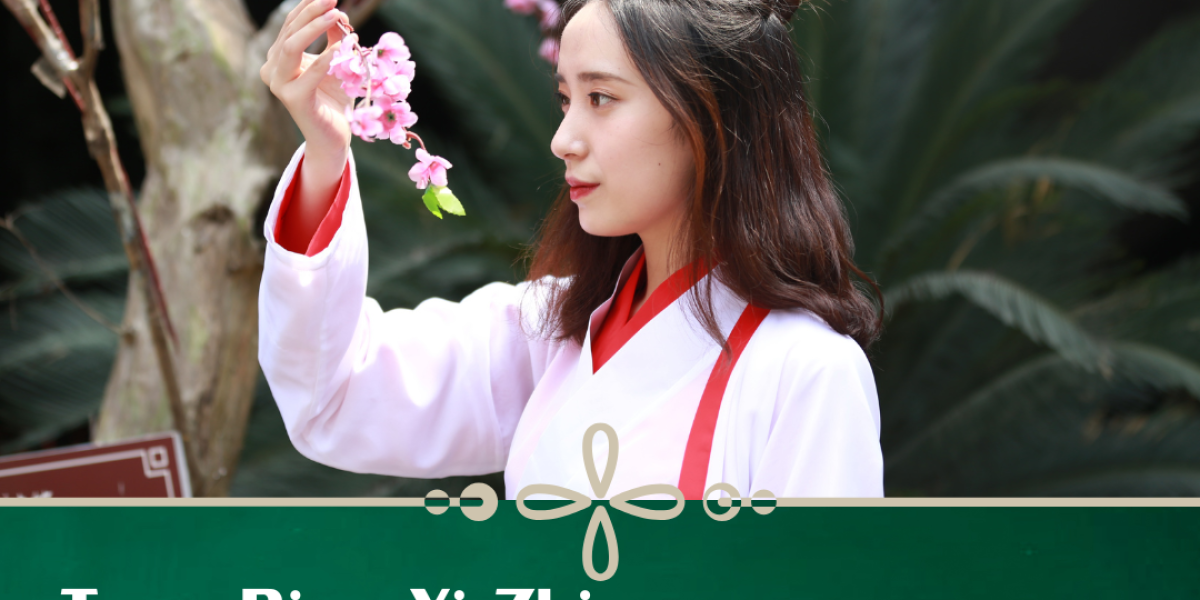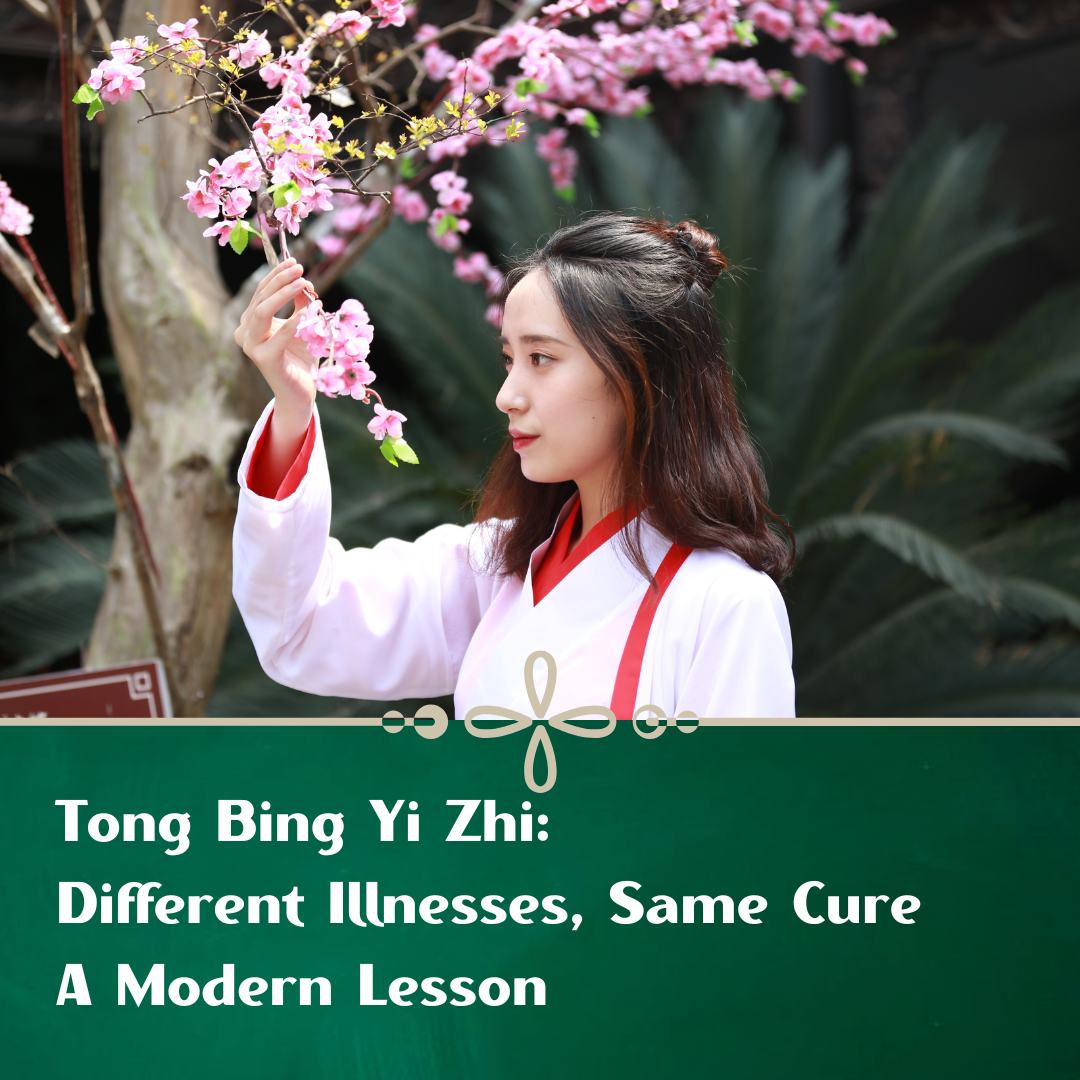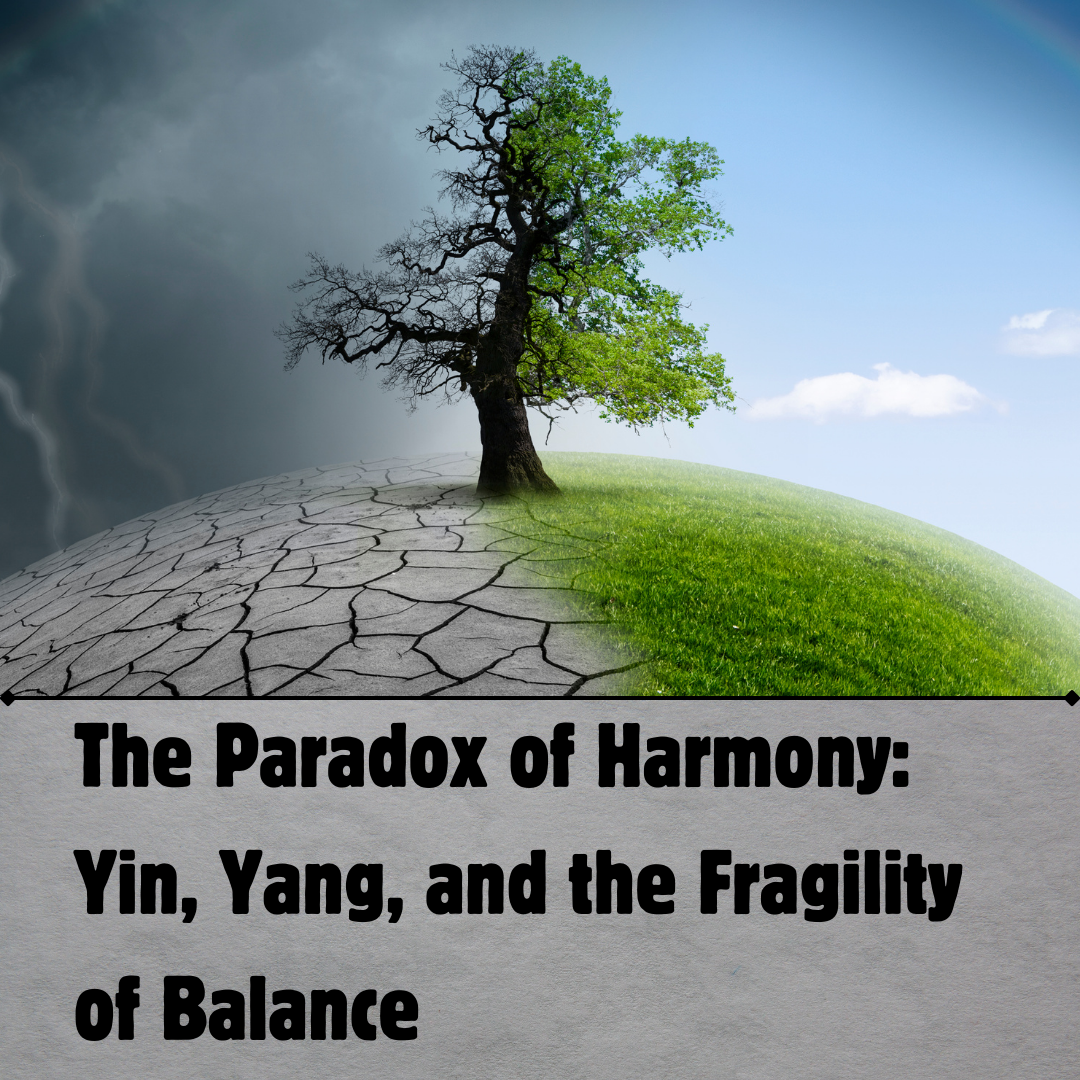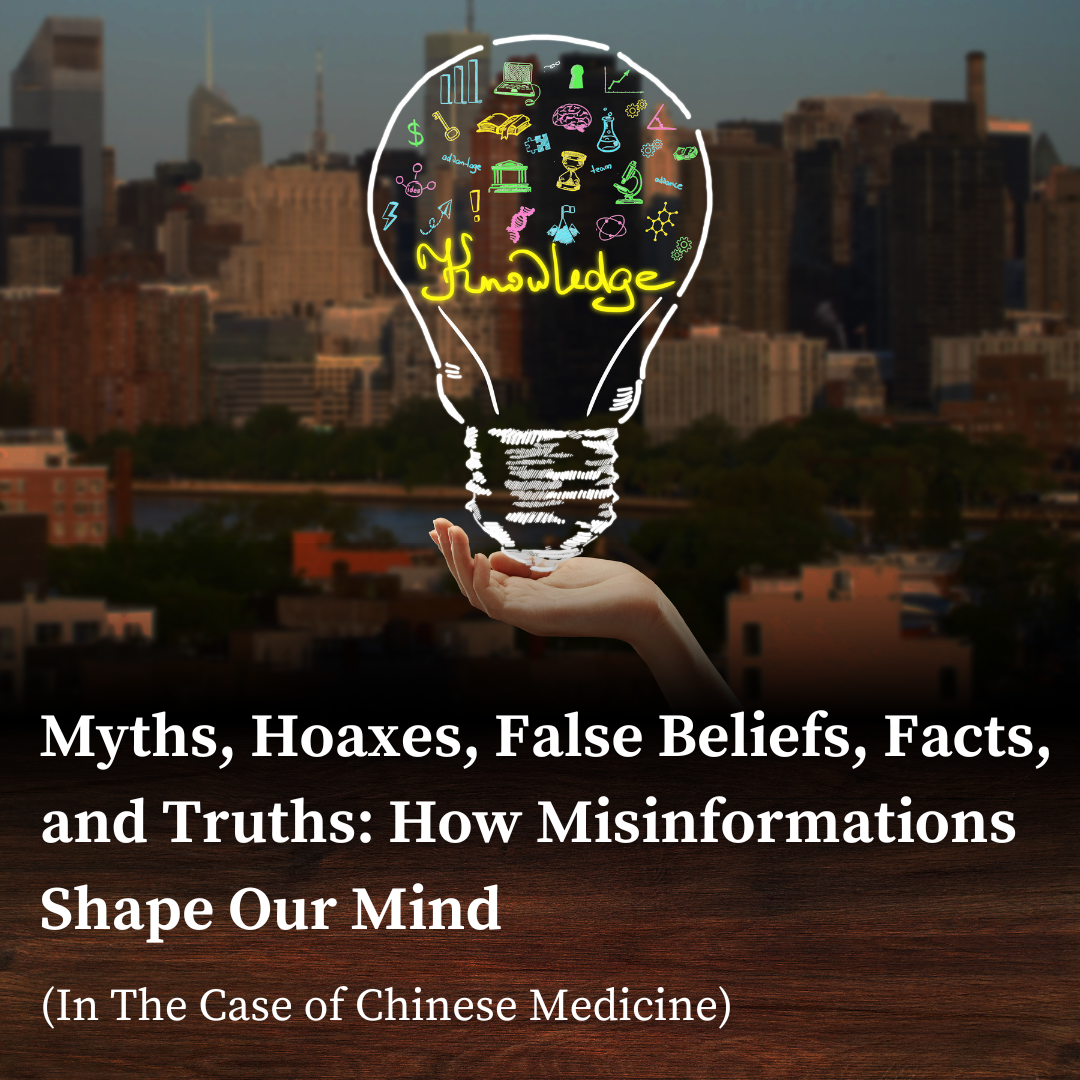It isn’t difficult to book an appointment with your Chinese Medicine Practitioner for A. So, at nine o’clock on a weekend morning, you and A are already seated in the clinic as the first patients of the day.
You take the lead, introducing him. “This is my friend, A. He suffers from pain in his neck, shoulders, and hands. His condition seems different from mine. I think it’s Hyperactivity of Yin due to Yang Deficiency.”
Your real intention was to help the Practitioner by explaining what A had been experiencing. But unexpectedly, the Practitioner frowned, clearly displeased.
“What do you mean by ‘Hyperactivity of Yin due to Yang Deficiency’? Did you check his pulse, his tongue, and perform the Four Examinations?”
“Uh… of course not! I’m not a practitioner. How could I do that?” you reply quickly.
“If you haven’t performed the Four Examinations, how can you be certain? That diagnosis requires them. It can’t be made otherwise.”
“Ah… well, last week we were just casually reading about Chinese Medicine online. We came across Hyperactivity of Yin due to Yang Deficiency, and from the symptoms described, we were convinced this must be A’s syndrome.”
The Practitioner raised his brows. “I’m sure you’ve seen the standard disclaimer: ‘This content is for general health education and is not medical advice, nor should it be used to diagnose or treat any illness.’”
“Oh… yes. That disclaimer. I forgot about it,” your voice trails off, realizing the mistake.
“I was convinced my own symptoms matched the description perfectly, so I assumed I had the syndrome. He was only following me, as a good friend,” A, sensing your unease, quickly supports you.
Noticing your nervousness, the Practitioner unexpectedly softened and smiled. “Don’t worry. Most patients behave like you. In fact, you two are wiser than many—some people don’t even come to qualified practitioners. They try to treat themselves, and the results are disastrous. Often, they prescribe herbs to others based on what they see on social media or from their own experiences. They mean well, but when the condition worsens, they’ve actually done harm. Because in Chinese Medicine, medicine is never one-size-fits-all. If someone improves, it’s usually due to chance—like gambling—or because of the placebo effect. That’s why we emphasize the principle: Tong bing yi zhi, Yi bing tong zhi. Different diseases, same treatment; same disease, different treatment.”
You both nod in understanding. “I see,” you say. “But it can’t be denied—these days, people don’t trust healthcare professionals, especially in Chinese Medicine. Instead, they fall for internet hoaxes. There must be more hoaxes online than stars in the sky!”
“Oh, really?” A replies, half-joking. “But it’s true, they’re everywhere. Just yesterday I saw a video claiming, ‘The health industry will collapse if you know this secret! Every illness can be cured by drinking water!’ And the video had hundreds of comments and hundreds of thousands of views.”
“Only hundreds of thousands? I thought it would be millions! Aren’t viral hoaxes supposed to hit millions?”
“If it had millions, it would already be viral. But you didn’t know that?”
“I think my social media app is connected to my brain’s command center. It filters out low-quality hoaxes automatically.”
“Wow. If you have that skill, you should teach me,” A jokes.
You laugh and turn back to the Practitioner. “Anyway, A has been experiencing severe pain in his neck, shoulder, and right hand for two weeks. We suspected it might be Hyperactivity of Yin due to Yang Deficiency because his symptoms worsen in cold air, but ease when he’s warm. That matches what we read online. At his office, the air conditioning is set unbearably cold. He’s weaker than his colleagues when it comes to cold, so these symptoms appeared—although he never had them before. Isn’t that right, A?”
“Well… sometimes, when I’m very tired from work. Nowadays, every job requires computers. Hours in front of a screen, checking documents—it’s exhausting. But this kind of pain is new. I used to tolerate the cold fine, but they’ve never set the AC this low before.”
The Practitioner nodded. “And now, how do you feel?”
You add, “I suggested he wear a sweater. Warmth seemed the solution. At first, he refused, worried he’d look odd wearing thick clothes in summer, but eventually he gave in. Unexpectedly, the pain worsened—he couldn’t move his arms. By the way, how are you now?”
“For a while, I couldn’t move,” A recalls. “But after moving it around, it came back. My shoulders were tense, my neck stiff. After light exercise, the stiffness eased, but I still felt restricted. And for some reason, I feared the immobility would return. It gave me real anxiety.”
“Which side is affected—left or right?” the Practitioner asked.
“Right side.”
“And what exactly did you feel? Tingling, heaviness, coldness, weakness?”
A thought for a moment. “It felt as though my hand had turned into rubber, or plastic—like it was no longer part of me.”
“No cold sensation?”
“No.”
“No weakness?”
“No.”
The Practitioner calmly noted everything down. “Alright. Please show me your tongue.”
“Hm? My tongue?” A asked, puzzled.
“Like this,” you demonstrate, sticking your tongue out. “This helps with diagnosis, right, Doctor?” The Practitioner nodded.
“Yes. Tongue inspection is one of the Four Examinations. It reveals things other tests cannot.”
Although hesitant, A complied—though only slightly.
“Not like that,” the Practitioner corrected. “Not just the tip. Stick out your whole tongue, to the base, like your friend.”
You patted A’s shoulder, teasing gently. “Don’t be shy—it’s not a prank.”
He smiled faintly, then did it properly.
“Good. Thank you,” the Practitioner said, then examined his neck, shoulder, and hand.
“That was fast,” A remarked.
“Tongue exams shouldn’t last long. A tired tongue distorts results,” the Practitioner explained. He pressed on A’s back. “Does this hurt?”
“Yes… yes, it hurts,” A winced.
“I didn’t press hard. That pain is significant. Now, extend both hands.”
The Practitioner returned to his desk to perform the pulse examination. After a moment of silence, he asked, “Have you been angry recently—especially when you couldn’t move your hand or neck?”
A’s eyes widened. “Exactly! I was furious at those office gossips. They humiliated me in front of everyone. They called me an idiot, brain-dead, a clown. Even Mr. L laughed! He said it was unprofessional to wear a sweater.”
“You should have explained you were ill, not unprofessional,” you replied, still pained by his story.
A sighed, regaining composure. “It’s too long to explain… but yes, you’re right. I was deeply angry then, and even recalling it makes me emotional.”
The Practitioner nodded gently. “I suspected as much. This is why I don’t agree with your initial guess. Your condition is not Hyperactivity of Yin due to Yang Deficiency.”
You and A leaned in, curious. “Then… what is it?”
The Practitioner replied calmly: “Qi and Blood Stagnation.”
Reference:
Sun, G. R., Eisenstark, D. D., & Zhang, Q. R. (2016). Fundamentals of Chinese Medicine. People’s Medical Publishing House.
Disclaimer:
This content offers high-level insights intended to stimulate intellectual discussion. It draws from research and analysis, integrating perspectives from Chinese Medicine and related disciplines. However, it is not a substitute for professional medical, scientific, or clinical advice. Readers are encouraged to think critically and consult a qualified Chinese medicine practitioner or licensed healthcare professional when appropriate.







